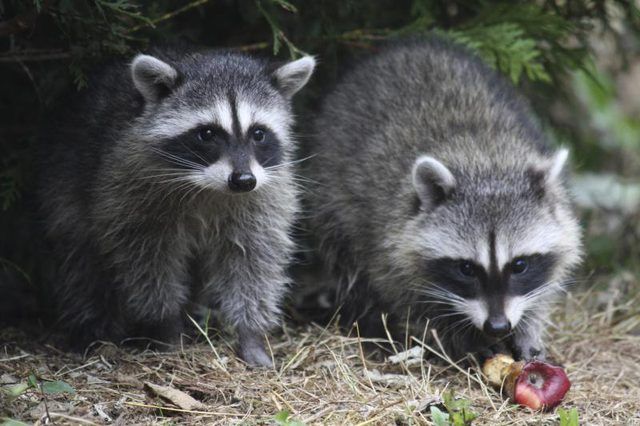Bulbs
Flower Basics
Flower Beds & Specialty Gardens
Flower Garden
Garden Furniture
Garden Gnomes
Garden Seeds
Garden Sheds
Garden Statues
Garden Tools & Supplies
Gardening Basics
Green & Organic
Groundcovers & Vines
Growing Annuals
Growing Basil
Growing Beans
Growing Berries
Growing Blueberries
Growing Cactus
Growing Corn
Growing Cotton
Growing Edibles
Growing Flowers
Growing Garlic
Growing Grapes
Growing Grass
Growing Herbs
Growing Jasmine
Growing Mint
Growing Mushrooms
Orchids
Growing Peanuts
Growing Perennials
Growing Plants
Growing Rosemary
Growing Roses
Growing Strawberries
Growing Sunflowers
Growing Thyme
Growing Tomatoes
Growing Tulips
Growing Vegetables
Herb Basics
Herb Garden
Indoor Growing
Landscaping Basics
Landscaping Patios
Landscaping Plants
Landscaping Shrubs
Landscaping Trees
Landscaping Walks & Pathways
Lawn Basics
Lawn Maintenance
Lawn Mowers
Lawn Ornaments
Lawn Planting
Lawn Tools
Outdoor Growing
Overall Landscape Planning
Pests, Weeds & Problems
Plant Basics
Rock Garden
Rose Garden
Shrubs
Soil
Specialty Gardens
Trees
Vegetable Garden
Yard Maintenance
How to Protect Fruit Trees from Squirrels, Raccoons and Birds
How to Protect Fruit Trees from Squirrels, Raccoons and Birds. The best way to protect fruit trees from squirrels, raccoons and birds is to use a combination of repellents, scare tactics and barriers. Making your yard unattractive to uninvited fruit eaters and triggering their fears of predators will discourage them from eating your trees' fruit...

The best way to protect fruit trees from squirrels, raccoons and birds is to use a combination of repellents, scare tactics and barriers. Making your yard unattractive to uninvited fruit eaters and triggering their fears of predators will discourage them from eating your trees' fruit before you can pick it.
Make Habitat Changes
Taking away unnecessary sources of food, water and cover discourages pest animals from staying in a yard to breed and eat the fruit harvest. Don't feed pets outdoors. Fix all leaking sprinklers and faucets, and dump all water containers. Cut back brush near the fruit trees to reduce nesting sites and cover for birds. Pruning nearby trees limits squirrels' aerial highway access. Unnecessary branches and structures such as fences near fruit trees increases the ways squirrels and raccoons can get the fruit. U.S. federal laws protect all wild birds, their nests, eggs and young -- except for certain pigeons, English starlings and English sparrows. The protection includes birds and nests on private property. Some squirrel species are protected, and laws about squirrels and raccoons vary by state. Many states prohibit trapping wild animals and releasing them in a different location.
Repel the Invaders
Several items can be used to try to deter animals. For example, the scent from human hair or dog hair spread on the ground around fruit trees may help repel squirrels and raccoons from those areas. Collect the hair from brushes, or use hair removed during a haircut. Blood meal doesn't keep raccoons away for long, however, and no commercial repellents have been proven to keep them away, according to the University of California Integrated Pest Management Online. If you want to try repellents, the best strategy is to rotate different products because raccoons and squirrels are quick to notice no threat is connected with the products' aromas. Commercial formulas contain ingredients that suggest danger or irritate the sensitive noses of garden pests; the ingredients include synthetic predator scent, capsaicin and rotten eggs. Spray the repellent on the fruit trees, and reapply it after a rainfall.
Use Scare Devices
Reflective products such as scare-eye balloons and bird tape often are used to scare birds, and they may startle invading squirrels and racoons, too. The shiny tape makes a crackling sound in wind. Scarecrows, model owls with bobble heads and devices that emit hawk screeches or electronic distress calls also deter birds. Use more than one scare tactic, and move the devices every few days so the invaders don't become accustomed to them.
Try the Radio Trick
Leave a radio playing all night near your fruit trees as the fruit ripens if the noise won't disturb your neighbors. The sound can deter raccoons. Those thieves scavenge at night and are large and bold enough to harm a dog. So using a radio is a better option than risking your pet as a fruit tree guard. Because electricity and moisture don't mix, and because electrical cords pose a tripping hazard, play it safe by using a battery-operated radio enclosed in a plastic bag.
Apply Barrier Protection
Bird netting is fruit trees' best defense against birds. Use plastic mesh that has 1/4- or 1/2-inch-diameter holes. Although squirrels can gnaw through bird netting, it offers some protection against them, too. Leaving corn or nuts out for squirrels while the trees' fruit ripens may distract them from the trees. For maximum protection, erect a wooden frame -- four legs with crossbars connecting the legs at their tops -- around each fruit tree, and lay bird netting over each frame to keep birds from pecking the outer fruit. Bird netting is reusable.